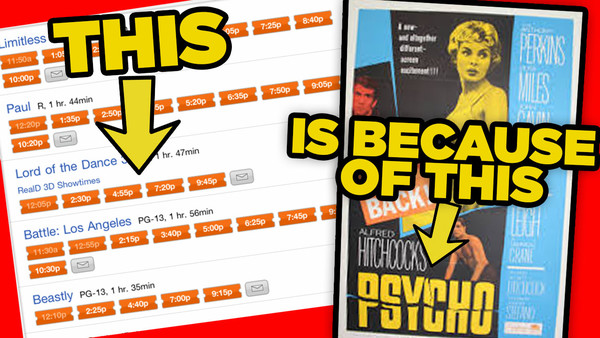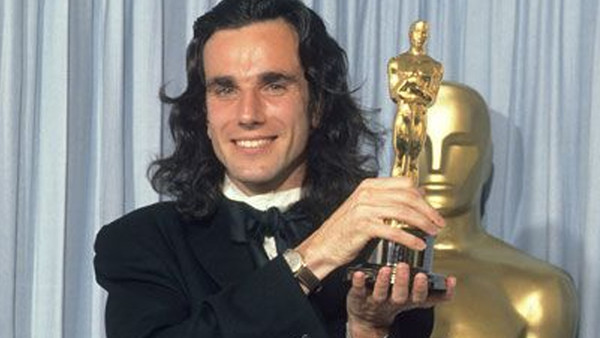The Origins Of 6 Features Common In Films
Alfred Hitchcock completely changed how films played in cinemas...

Movies are great. Every adult alive has watched at least 35. Reasonable people may completely disagree on whether a movie is good (except for Avatar, seemingly) but we always agree on what a movie actually is. Because, handily, there are some definitive features that set a movie apart from a YouTube video. While the fact that they aren’t produced in some guy’s bedroom is one of them, it’s not actually the definitive differentiator.
Take something like length, for a start. Most modern movies fall in the 80-150 minute range. Early movies were rarely longer than a few minutes due to the technological limitations of the era. As technology improved, movies got longer. Then they stopped (except The Lord Of The Rings). We discovered through trial and error that 90 minutes was just about long enough.
Other features like theatrical releases are also due to historical limitations rather than conscious choice. Because, of course, theatre was the only place anyone could watch a movie for most of the first half of the 20th century. Then TVs became widespread but theatres have refused to die and that tradition just stuck.
Some of the other features have more exciting origins though. And those will be the focus of this article.
6. The Oscars Were Started To Prevent Unionisation In Hollywood

The Academy of Motion Picture Arts and Sciences. The name
sounds grand, timeless, and reeks of unrivalled prestige. That was the exact
effect Louis B. Mayer was going for when he started the organisation in 1927.
The Academy awards the Oscars to outstanding works in film every February.
The Academy’s founding history is a lot murkier though. Mayer was concerned by the rise of construction unions in Hollywood. He was a co-founder of MGM and the movie boom that accompanied the roaring ‘20s had made him an incredibly wealthy man. Then his stage hands started unionising. Mayer worried that “the talent” (writers, actors and directors) might also get bitten by the union bug. As far as he was concerned, this would only lead to insurmountable labour problems.
So Mayer and a few studio-owner buddies started the Academy in 1927 to pre-empt any further unionisation attempts in Tinsel town. Two years later, they started issuing awards as a way of cleaning up the industry’s image in the public eye. Stars were just as wild in the 1920s as they are today. Their only disadvantage was living in a society that was a lot more prudish than we are.
The awards were good twist and they gave the industry some severely absent prestige. Mayer lost the unionisation fight with the onset of the Great Depression but he tried. Hard.